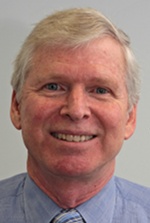Note: This story was updated at 2:03 p.m.
Early voting for the Nov. 6 election ends today, and the ballot includes five candidates running for three seats on Oak Ridge City Council.
The five candidates were asked to define the cityÔÇÖs biggest problem during a League of Women Voters forum last month. Two named revenues, one mentioned housing, another talked about repopulating the city as the original generation ages, and the last said the city is too expensive.
The five candidates are the three incumbentsÔÇöCharlie Hensley, Chuck Hope, and Ellen SmithÔÇöand two challengers, Trina Baughn and Kelly Callison.
Baughn, a communications professional, said she thinks the cityÔÇÖs No. 1 problem is that itÔÇÖs too expensive. City officials need to need to level the playing field and canÔÇÖt ÔÇťpick and chooseÔÇŁ between developers, Baughn said.
She said Oak Ridge has a large percentage of subsidized housing, and sheÔÇÖs not sure why the number of those units keeps expanding.
City officials have tried to reduce the number of blighted homes in Oak Ridge, but Baughn said a distinction needs to be made between blighted homes and legacy homes.
Callison, a business executive, said the No. 1 problem is housing. ItÔÇÖs affecting crime, schools, and the ability to attract new people to Oak Ridge, he said.
Callison said heÔÇÖs a strong proponent of the ÔÇťNot in Our CityÔÇŁ program, which is meant to prevent crime and clean up neighborhoods, as well as a program that permits home inspections before utilities are turned on.
He said housing, schools, and new commercial development are all tied together, and housing needs to be tackled first.
Hensley, a retired engineer, said the No. 1 problem is revenue flow. He said the cityÔÇÖs debt is a symptom of the lack of revenue flow.
The new Kroger Marketplace shopping center at Oak Ridge Turnpike and Illinois Avenue could produce the equivalent of about 15 cents on the property tax rate, Hensley said. If the Oak Ridge Mall were redeveloped, it could about double that revenue increase, he said.
Hensley said new revenues could be used to pay down the municipal debt, and he also emphasized commercial development and a ÔÇťpositive attitude.ÔÇŁ He said housing and new jobs ought to bring in more new residents.
Hope, a business owner, said he prefers to view the cityÔÇÖs No. 1 problem as a challenge, as opposed to a problem. The main challenge is increasing sales tax revenues, Hope said.
Federal facilities in Oak Ridge account for more than $3 billion in spending each year, and itÔÇÖs the second largest economic driver in the state, Hope said. But Oak Ridge residents need to be ready for possible reductions in federal programs and capitalize on niche technologies produced at Oak Ridge National Laboratory.
Hope said he would like to set a goal of generating $1 billion in new revenues in Oak Ridge in the next 12 years while also creating 4,500 new jobs.
Smith, a research staff member at Oak Ridge National Laboratory, also said she prefers to regard the cityÔÇÖs top problem as a challenge. She said the main challenge is to repopulate the city as the original generation passes on. Oak Ridge was built about 70 years ago during World War II as part of the top-secret Manhattan Project.
Housing is part of that challenge, Smith said, and City Council needs to take action to define a relatively new land bank program.
Smith said she believes Oak Ridge is ÔÇťturning the cornerÔÇŁ on crime and neighborhood blight, and officials and residents need to sell the city as a wonderful place to live.
The candidates were asked how they might cut government expenses.
Smith said there aren’t many opportunities for the city to cut expenses, but City Council members have been interested in discussing ways that the city government and school system could share services such as maintenance and information technology
“If we sit down and work together, we could find some opportunities,” she said.
The city could also find ways to reduce its energy consumption, although that would require an up-front investment, Smith said.
Hope agreed with Smith that the use of shared services between the city and schools could save money.
The city also needs to stick to its capital improvement plan and find ways to appropriately streamline costs, he said.
And some city services could become fee-based, he said.
Hensley said cutting expenses is very difficult right now.
“What we’re essentially looking at is cutting services to reduce expenses,” he said.
He said he would rather grow the economy than cut services. He suggested the proposed $6.5 billion Uranium Processing Facility at the Y-12 National Security Complex could help, with the management there offering to help recruit businesses.
In regard to shared services, Callison said the school system has had some concerns with that proposal, wondering who would get priority in some situations involving the city government and school system.
Bringing in new businesses will help increase the amount of taxes collected in Oak Ridge, Callison said.
And mixed-use developmentÔÇöcombining residential and commercial spaces in one development, for exampleÔÇöwould allow the city to get more use out of one particular location, Callison said.
Baughn said the city has generally always spent more money. One million dollars is spent each year on organizations that are supposed to help economic development, she said.
“We’re going to have to cut,” Baughn said.
She said the Oak Ridge Convention and Visitors Bureau operated 15 percent under budget, but still spent the money, even though it didn’t have to. If residents don’t demand that tax dollars be used efficiently, government officials won’t ensure that it is, Baughn said.










Andrew Howe says
Money, money, money. Family fights mostly seem to center around these, and this family is of course the folks running for city council. Not that they’re fighting, but…
All the financial who-ha pretty comes down to something simple. If you have debt, you need to make more money, or spend less until that debt is gone (hopefully not incurring a horrid interest rate on what you still owe). Once you’re out of debt, you do everything you can to avoid going into it again – don’t live outside your means, basically.
By applying this very basic approach to a budget, I personally have never been in debt in my life (except for one auto loan and one mortgage – both paid off within two years) and my credit rating is about as good as you can have.
OK, now apply that to a city. Some factors are different than personal finances.
E.G. the city is the same size today with our current ~30,000 population as it was when we had around twice that. Less property taxes coming in, but the same amount of utility costs. An individual can ‘downsize’ by moving to a smaller home, but a city can’t just ask everyone to ‘slide over’ so we can lessen our utilities, etc.
In short, some factors mean that there is a certain amount of spending required that can’t be avoided – maintenance to the infrastructure.
BUT, there ARE certain things that we certainly don’t NEED to spend city money on. The problem is most residents want to have everything, and will whine and complain if they don’t get it. TN Ave was re-paved last summer, NY Ave repaved just a month or so ago. Good things, but were they absolutely needed? Probably not. We increased our police force a short time ago, upgraded city vehicles and such. Both things probably not truly needed. But don’t quote me on that opinion, I don’t have the needed facts to know if I’m wrong or right.
In short though, it comes down to the fact that in this economy, which probably won’t get a heck of a lot better soon, we simply cannot count on increased income. We can’t put all our eggs in the “more people and businesses will come here” basket while we outspend ourselves. The only safe option is to spend less. And to do that the populace needs to recognize the need for it so they don’t think “man, this place sucks, the streets are all tore up and the parks not getting the upgrade I wanted”.
It comes down to clear leadership. If the people are made to recognize that we can get really super back in the black if we tighten our belts and do without for a while, they might forgive a few things being left aside for the short term.
Granted, I do recognize it’s a circular thing. If we don’t make the city as nice as possible, people won’t want to live here (or at least the rich people that we hope will live here and provide us with high property tax revenues and will spend spend spend at the local stores).
From a completely different perspective, think about a poor family rich in love. They may not have a lot, but they are happy with what they have. Oak Ridge could be that family if we stop worrying about ‘growth’ and those other ‘keeping up with the Jones’ mentalities. This is a very cool town, with a very cool history, with a LOT of very cool people. I for one don’t mind staying poor if we cultivate a city rich in love.
And THAT my friends, is what I believe our number one problem is. Our attitude. There’s a lot of complaining and griping and self-loathing and feelings of inadequacy around our burg, and in many ways much of that attitude is self-feeding.
I went to the 70th anniversary celebration in Jackson Square this fall. Maybe 100 people were there, and I thought that was rather sad. This town helped kick some serious butt back when it was formed, and I seriously expected there to be thousands of people out celebrating that day. When just 100 out of 30,000 attend an event like that, I think something is most definitely amiss in our spirit. Getting a spirit back on track is a hard thing, but it can make all the difference.
So let’s quite worrying about the little things we don’t have for a while, get our town fully back in financial order by tightening our belts, and enjoy the great things we DO have in the meantime.
But I’m a dern hippy, so… čśë
maremartell says
I live in the Highland View Neighborhood. It’s more like a War Zone up here. People are just fighting to survive. There aren’t enough jobs available for people who are under-educated but smarter than most. People that want to work but can’t find anything decent in this community. I’ve seen a lot of tribulations occurring in the small circle I live nearby. A lot that could be done by making legitimate jobs available with decent wages.
The question of why there is so much subsidized housing has a blatant answer, people who work minimum wage jobs can’t afford to live in the city without having more than one job to just survive. Did I mention that decent jobs are a HUGE issue?
Mark Caldwell says
Ms. Baughn said Oak Ridge has a large percentage of subsidized housing. IÔÇÖm wondering what that percentage might be? It certainly is not apparent to me that Oak Ridge has a large number of subsidized housing. Does Ms. Baughn know or is she just stoking the fires of rich vs. poor and the haves and have-nots? Maybe sheÔÇÖd rather there not be any subsidized housing in Oak Ridge.
Who knows?
Charlie Jernigan says
About 4.4% of the households in Oak Ridge would be a decent estimate.
Ellen Smith says
The city’s most recent fair housing report indicated that somewhere around 10% of Oak Ridge’s housing units are subsidized housing. That included public housing units operated by the Oak Ridge Housing Authority, Section 8 vouchers from ORHA and other housing authorities, and income-qualified tax-credit properties.
Charlie Jernigan says
Yes, I did not include tax-credit properties.